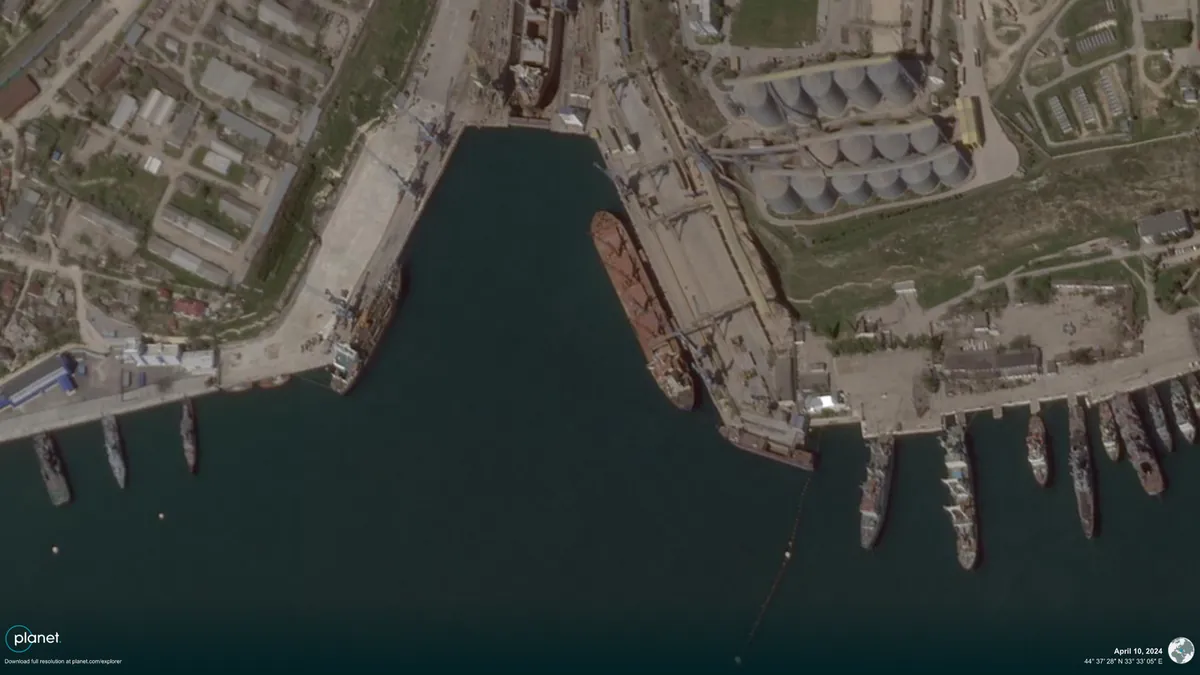Russia ships stolen Ukrainian grain from occupied Sevastopol for sale to Venezuela for the first time - media
Kyiv • UNN
Russia has used the occupied port of Sevastopol to load and export 27,000 tons of stolen Ukrainian grain to Venezuela, indicating its attempt to legalize trade with the occupied territories.

For the first time, Russia has used the occupied port in Sevastopol to load stolen grain to sell it to Venezuela. This is reported by the shipping magazine Lloyd's Lis, UNN reports.
Details
According to satellite imagery, the Russian-flagged bulk carrier Enisey began loading grain in Sevastopol on April 9.
Although Lloyd's List was unable to independently verify the origin of the grain loaded, documents obtained by researchers from open sources SeaKrime and KibOrg show that " Enisey" loaded 27,000 tons of what is described on the bill of lading as "wheat of Russian origin.
At the same time, the publication emphasizes that Sevastopol is used to export goods of Ukrainian origin.

Subsequently, on April 30, it left the port, its automatic identification system signaling its final destination of Puerto Cabello, in Venezuela.
By this trade, Russia is signaling that legitimizing and internationalizing the so-called "new republics" is now a political priority - they no longer hide it
Addendum
Lloyd's Lis explained that in this way Russia is trying to legitimize trade routes from the occupied Ukrainian territories with its international partners.
It is noted that this cargo marks a shift in open trade in grain from the occupied territory with international partners.
Recall
The occupiers are illegally exporting stolen Ukrainian grain from the occupied Kherson region to the Republic of Karelia, using containers owned by Chinese and Kazakh logistics companies to circumvent international sanctions.